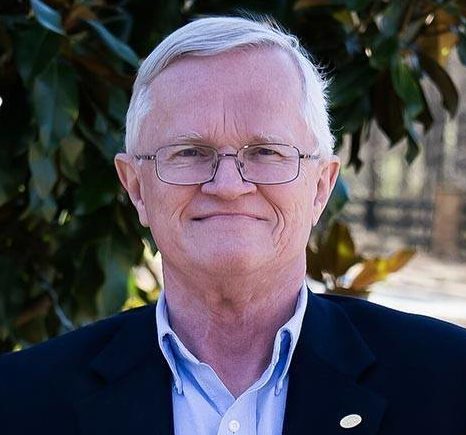Although powerful preaching, serving the poor, and missionary work often take the lime light in Christian ministry, the truth is that home groups, churches, and especially denominations will fall to pieces without competent and consistent administrators. The job isn’t glitzy or glamorous and it is often beset with equal parts of tedium, stress, and failure, but without it nothing gets done–or at least not for long. Meet David Krogh, a faithful servant who who has found himself in roles ranging from pastor to executive director in a denomination to academic dean of a bible college. Over more than five decades of ministry, Krogh has been involved with countless decisions that have made the Church of God General Conference what it is today.

—— Links ——
- More about David Krogh on the staff page for the Atlanta Bible College
- See also the main website of the Church of God General Conference
- Learn more about the missions organization: Lord’s Harvest International
- If you’d like to support Restitutio, you can donate here.
- Intro music: Good Vibes by MBB Attribution-ShareAlike 3.0 Unported (CC BY-SA 3.0) Free Download / Stream: Music promoted by Audio Library







Thank you, Sean; I enjoyed the interview.
My question for David would be :
How popular at the Bible College in Oregon, Illinois, was Dr. Alva G. Huffer’s ‘Systematic Theology’ ? Was the work ever used much at the Bible College when it transferred to Atlanta ? I quite like it, and find it very useful.
Our Bible College has always used Dr. Huffer’s Systematic Theology book as a textbook in our Theology classes. In fact Dr. Huffer taught two of our Systematic Theology classes both in Oregon, IL and after we moved to the Atlanta area. Other instructors also use his book.
Thanks, David. God bless you. Two further questions, if I may ask them ? :
[1]. I’m pleased to hear that Dr. Huffer’s ‘Systematic Theology’ is still being used at the Bible college as a textbook. However, because of doctrinal differences of opinion within the ‘Church of God (General Conference)’ regarding the issue of the existence of a personal, fallen, angelic devil, Dr. Huffer’s ‘Systematic Theology’ excludes (for irenic, and diplomatic reasons) any mention of the subject of ‘Angelology’, and, indeed, any mention of ‘Angels’ in the ‘Index of Subjects’. However, do you know if Dr. Huffer himself, did share his Church’s majority view that the devil is a fallen, angelic being ?
[2.] Your grandparents were baptized in 1868. Do you know if they ever met Benjamin Wilson (1817-1900), producer of the ‘Emphatic Diaglott’ in 1864 ?
John, I do not know the answer to your first question. I wish I would have asked him about it in light of his silence on the subject in his book. I am not aware of any other of his writings that might clarify it.
I am quite sure that my great grandparents never met Benjamin Wilson. They lived in eastern Nebraska and to my knowledge never travelled far from home.
It’s far better not to read any one man’s theology until you have solid foundations of Biblical theology along with a solid grounding in the Biblical languages, and a wider reading of commentaries. I say that from long experience in all of it. Once I started a more formal Bible school instruction, I realized the teachers were biased without saying it, laying out their Biblical presuppositions to start with. I had to read on my own from used books in Bible before I realized that pastors were doing the same thing.
Within the last few years my wife and I did a casual survey in a country “church” near our home, and found that most of the Sunday service attendees after the service ended could not tell you what the sermon was about! We believe that is the situation now in most church services. They are about experiencing Jesus now, but not much about solid thinking, entertainment is more important than any teaching, if such teaching even exists…
I wonder if the same exists but maybe to lesser extent in our Bible colleges where freedom of Christian thought should be emphasized instead of texts, with a wider grounding in what we all are being deceived with in our modern day society, like a course in “Modern Idolatry” which I feel is a subject taboo in solid Christian teaching and preaching since it would be oh so unpopular to whatever audience is pretending to listen to. Of course, much more could be said on this “topic”; but needs to be said on a practical life study actually experiencing it withou sermonizing or reading any systematics. I wonder too if our modern day students are coming into colleges without a grounding of anything Biblically. Which is a very sad situation. The world, the flesh, and the devil already have their deceptive grounding in our lives than we care to admit.
Hi, Thomas;
God bless you.
Point number one is to realize that Theology is not everyone’s ‘cup of tea’.
As regards Biblical study and Theology, everyone has to start somewhere. As most people don’t have intellectual infallibility (!), we’re all prone to making mistakes. The main thing is to be humble, open minded, fair, impartial, calm, and as reasonable and objective as possible in one’s Biblical research and theological discussions.